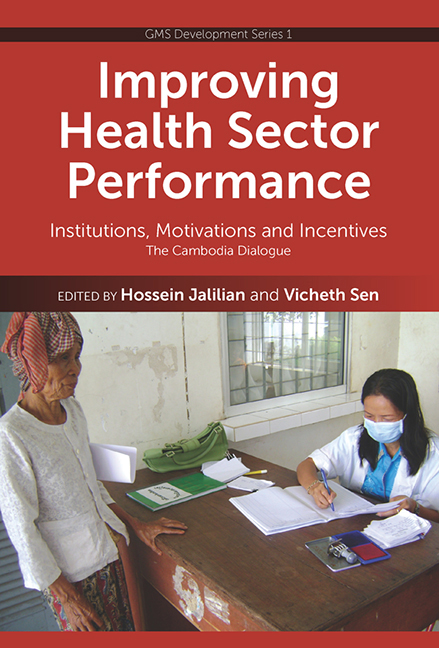 Improving Health Sector Performance
Improving Health Sector Performance from Part III - Optimal Health Workers Contracts
Published online by Cambridge University Press: 21 October 2015
CLIENT CHOICE THROUGH DEMAND-SIDE FINANCING
Marie Stopes International (MSI) is globally recognized as one of the leading family planning organizations. The organization uses deman-dside financing to improve access to family planning, sexually transmitted infection (STI) services, and safe motherhood services, using a range of innovative financing models. MSI is currently running voucher schemes and outputs-based aid (OBA) financing in several countries, including Kenya, Uganda, Tanzania, Cambodia, and Yemen. This chapter explores MSI's global experiences with demand-side financing for sexual and reproductive health services.
WHY DEMAND-SIDE FINANCING?
In some settings, limited government capacity challenges the ability to design and implement effective public health service delivery mechanisms (Eichler 2006). Historically, financial input into health systems has focused on the supply side (infrastructure, staff, salaries, etc.), often, though not exclusively, through the government/public sector. This approach is failing to impact significantly on health outcomes as a result of inefficiencies, inflexibility, and monopolies inherent in many public sector systems (Sandiford et al. 2005; Bhatia & Gorter 2007; Bhatia et al. 2006).
A large proportion of health care in developing countries is delivered through the non-state sector. In Pakistan, for example, 80 per cent of total health expenditure is out-of-pocket payments by individuals for curative services provided by independent, private health care providers (Pakistan Medical Research Council 1998). The scale of this private sector reflects on public services — both the shortage of public health care facilities in rural areas and urban slums, and the perceived low quality of their services by clients.
The existence of a large private sector in developing countries presents an opportunity to increase the poor's access to key health services. However, harnessing the private sector to provide services to low-income groups and thereby contribute to public health objectives presents a number of challenges. The quality of private service provision is often poorly regulated by the state and hence can be low or varied. The services may be biased towards those that maximize revenue rather than those that offer the best public health outcomes, such as long-term family planning methods, bed nets, and other preventive services.
SEXUAL AND REPRODUCTIVE HEALTH
Sexual and reproductive health is underresourced in many developing countries.
To save this book to your Kindle, first ensure no-reply@cambridge.org is added to your Approved Personal Document E-mail List under your Personal Document Settings on the Manage Your Content and Devices page of your Amazon account. Then enter the ‘name’ part of your Kindle email address below. Find out more about saving to your Kindle.
Note you can select to save to either the @free.kindle.com or @kindle.com variations. ‘@free.kindle.com’ emails are free but can only be saved to your device when it is connected to wi-fi. ‘@kindle.com’ emails can be delivered even when you are not connected to wi-fi, but note that service fees apply.
Find out more about the Kindle Personal Document Service.
To save content items to your account, please confirm that you agree to abide by our usage policies. If this is the first time you use this feature, you will be asked to authorise Cambridge Core to connect with your account. Find out more about saving content to Dropbox.
To save content items to your account, please confirm that you agree to abide by our usage policies. If this is the first time you use this feature, you will be asked to authorise Cambridge Core to connect with your account. Find out more about saving content to Google Drive.